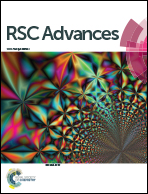Inexpensive α-amylase production and application for fiber splitting in leather processing
Abstract
Recently, the production of superior quality enzymes using waste sources has promoted greater research interest due to their enhanced enzyme activity, selectivity and stability. In this work, the production of enzyme α-amylase from wheat bran using a solid-state fermentation technique is presented. Further, reasonably high production of liquid α-amylase was achieved with enhanced activity and stability. In order to check the benefits of α-amylase, a fiber opening process using an in-house α-amylase has been developed for goatskins, in an attempt to reduce pollution from beam house processes, while doing a cost and environment benefit analysis. In addition, the effect of fiber opening by the developed enzyme was compared with a couple of commercial enzyme products and chemical processes (lime and sodium sulphide). After the fiber splitting process, the pelt was made into crust leather and the effect of fiber splitting on the strength properties related morphological changes of the crust leather samples were thoroughly investigated. The findings revealed that the inexpensive enzyme produced in this study displayed lower pollution load (COD, TS), with significant release of inter-fibrillary materials. Another significant observation was that the enzyme concentrate from the SSF process showed equivalent fiber splitting with lower cost than chemical-based processes and the commercially used powder enzyme products. Finally the developed inexpensive enzyme will act as a better replacement for chemical processes with lower cost.


 Please wait while we load your content...
Please wait while we load your content...